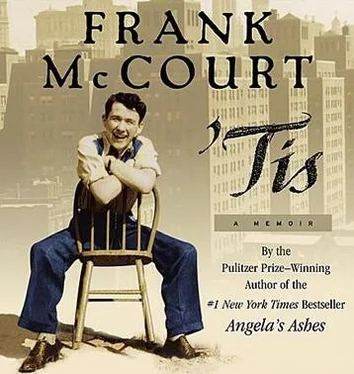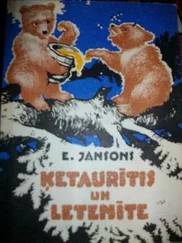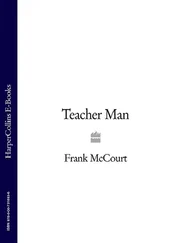Frank McCourt - 'Tis
Здесь есть возможность читать онлайн «Frank McCourt - 'Tis» весь текст электронной книги совершенно бесплатно (целиком полную версию без сокращений). В некоторых случаях можно слушать аудио, скачать через торрент в формате fb2 и присутствует краткое содержание. Жанр: Старинная литература, на английском языке. Описание произведения, (предисловие) а так же отзывы посетителей доступны на портале библиотеки ЛибКат.
- Название:'Tis
- Автор:
- Жанр:
- Год:неизвестен
- ISBN:нет данных
- Рейтинг книги:3 / 5. Голосов: 1
-
Избранное:Добавить в избранное
- Отзывы:
-
Ваша оценка:
- 60
- 1
- 2
- 3
- 4
- 5
'Tis: краткое содержание, описание и аннотация
Предлагаем к чтению аннотацию, описание, краткое содержание или предисловие (зависит от того, что написал сам автор книги «'Tis»). Если вы не нашли необходимую информацию о книге — напишите в комментариях, мы постараемся отыскать её.
'Tis — читать онлайн бесплатно полную книгу (весь текст) целиком
Ниже представлен текст книги, разбитый по страницам. Система сохранения места последней прочитанной страницы, позволяет с удобством читать онлайн бесплатно книгу «'Tis», без необходимости каждый раз заново искать на чём Вы остановились. Поставьте закладку, и сможете в любой момент перейти на страницу, на которой закончили чтение.
Интервал:
Закладка:
How about high school, Mr. McCourt?
I didn’t go.
Sebastian says, Yeah, it shows. And I promise myself, I’ll get you later, you little bastard.
They tell him, Shut up, Sebastian.
Mr. McCourt, didn’t they have no high school in Ireland?
They had dozens of high schools but kids from my school weren’t encouraged to go.
Man, I’d like to live in a country where you didn’t have to go to high school.
In the teachers’ cafeteria there are two schools of thought. The old-timers tell me, You’re young, you’re new but don’t let these damn kids ride all over you. Let ’em know who’s boss in the classroom and remember, you are the boss. Control is the big thing in teaching. No control and you can’t teach. You have the power to pass and fail and they know goddam well if they fail there’s no place for them in this society. They’ll be sweeping the streets and washing the dishes and it’ll be their own fault, the little bastards. Just don’t take shit. You’re the boss, the man with the red pen.
Most of the old-timers survived the Second World War. They won’t talk about it except to hint at bad times at Monte Cassino, the Battle of the Bulge, Japanese prisoner of war camps, riding a tank into a German town and searching for your mother’s family. You see all this and you’re not gonna take shit from these kids. You fought so they could sit on their asses in school every day and get the school lunch they whine about all the time and that’s more than your own father and mother ever had.
Younger teachers are not so sure. They’ve taken courses in Educational Psychology and the Philosophy of Education, they’ve read John Dewey, and they tell me these children are human beings and we have to meet their felt needs.
I don’t know what a felt need is and I don’t ask for fear of exposing my ignorance. The younger teachers shake their heads over the older ones. They tell me the war is over, these children are not the enemy. They are our children, for God’s sakes.
An older teacher says, Felt needs, my ass. Jump from a plane into a field full of Krauts and you’ll know what a felt need is. And John Dewey can kiss my ass, too. Just like the rest of these goddam college professors bullshittin’ about teaching in high schools and they wouldn’t know a high school kid if he walked up and pissed on their leg.
Stanley Garber says, That’s right. Every day we put on our armor and go into battle. Everyone laughs because Stanley has the easiest job in the school, speech teacher, no paperwork, no books, and what the hell would he know about going into battle? He sits behind his desk and asks his small classes what they’d like to talk about today and all he has to do is correct their pronunciation. He tells me it’s really too late to help them by the time they get to high school. This is not My Fair Lady and he’s not Professor Henry Higgins. On days when he’s not in the mood or they don’t want to talk he tells them get lost and he comes to the cafeteria to discuss the terrible state of American education.
Mr. Sorola smiles at Stanley through his cigarette smoke. So, Mr. Garber, he says, how does it feel to be retired?
Stanley smiles back. You should know, Mr. Sorola. You’ve been retired for years.
We’d all like to laugh but you never know with principals.
When I tell my students bring their books to class they claim, Miss Mudd never gave us no books. Economic Citizenship classes say, We don’t know nothin’ about Your World and You, and English classes say they never saw Giants in the Earth or Silas Marner. The chairman of the Academic Department says, Of course they got books and when they got them they had to fill out book receipts. Look in Miss Mudd’s desk, excuse me, your desk, and you’ll find them.
There are no book receipts in the desk. There are travel brochures, crossword puzzle books, an assortment of forms, directives, letters Miss Mudd wrote and never sent, a few letters to her from former students, a life of Bach in German, a life of Balzac in French, and there are innocent looks around the room when I say, Didn’t Miss Mudd hand out books and didn’t you fill in book receipts? They look at one another and shake their heads. Did you get a book? I don’t remember getting a book. Miss Mudd, she never did nothin’.
I know they’re lying because in each class there are two or three with books and I know they got the books in the normal way. Teacher distributes them. Teacher gets book receipts. I don’t want to embarrass the students who have the books by asking them how they came by them. I can’t ask them to make liars of their classmates.
The chairman stops me in the hallway. Well, how about those books? and when I tell him how I can’t embarrass the students who have the books he says, Bullshit, and storms into my class next period. All right, the ones who have books, raise your hands.
There is one hand.
All right, where did you get that book?
Ah, I got it, ah, from Miss Mudd.
And you signed a receipt?
Ah, yeah.
What’s your name?
Julio.
And when you got that book didn’t the rest of the class get books, too?
I feel my heart beating hard and I’m angry that even if I’m a new teacher this is my class and no one should barge in here and embarrass one of my students and, Christ, I have to say something. I have to come between this boy and this chairman. I tell the chairman, I already asked Julio about that. He was absent and got the book from Miss Mudd at the end of the day.
Oh, yeah. Is that right, Julio?
Yeah.
And the rest of you. When did you get your books?
There is silence. They know I lied and Julio knows I lied and the chairman surely suspects me of lying but he doesn’t know what to do. He says, We’ll get to the bottom of this, and leaves.
The word goes from class to class and next day there is a book on every desk, Your World and You and Silas Marner, and when the chairman returns with Mr. Sorola he doesn’t know what to say. Mr. Sorola gives his little smile. So, Mr. McCourt, we’re back in business, eh?
There may be books on every desk this one day when students and teacher present a united front to the outsiders, the chairman, the principal, but once they leave the honeymoon ends and there is a chorus of complaints about these books, how boring they are, how heavy, and why do they have to bring them to school every day? The English students say, Oh, Silas Marner ’s a small book, but if they have to carry Giants in the Earth you need a big breakfast, it’s such a big book and it’s so boring. Will they have to carry it every day? Why can’t they leave it in the classroom closet?
If you leave it in the closet how are you going to read it?
Why can’t we read it in class? All the other teachers tell their classes, Okay, Henry, you read page nineteen, okay, Nancy, you read page twenty, an’ that’s how they finish the book and when they’re reading we can put our heads down an’ take a nap ha ha ha, just kidding, Mr. McCourt.
38
In Manhattan my brother Malachy is running a bar called Malachy’s with two partners. He acts with the Irish Players, appears on radio and television and gets his name into the newspapers. That brings me fame at McKee Vocational and Technical High School. Now my students know my name and I’m not Mr. McCoy anymore.
Hey, Mr. McCourt, I seen your brother on TV. He’s a crazy guy.
Mr. McCourt, my mother seen your brother on TV.
Mr. McCourt, how come you’re not on TV? How come you’re just a teacher?
Mr. McCourt, you got an Irish accent. Why can’t you be funny like your brother?
Mr. McCourt, you could be on TV. You could be in a love story with Miss Mudd, holding her hands on a ship and kissing her old wrinkly face.
Читать дальшеИнтервал:
Закладка:
Похожие книги на «'Tis»
Представляем Вашему вниманию похожие книги на «'Tis» списком для выбора. Мы отобрали схожую по названию и смыслу литературу в надежде предоставить читателям больше вариантов отыскать новые, интересные, ещё непрочитанные произведения.
Обсуждение, отзывы о книге «'Tis» и просто собственные мнения читателей. Оставьте ваши комментарии, напишите, что Вы думаете о произведении, его смысле или главных героях. Укажите что конкретно понравилось, а что нет, и почему Вы так считаете.












